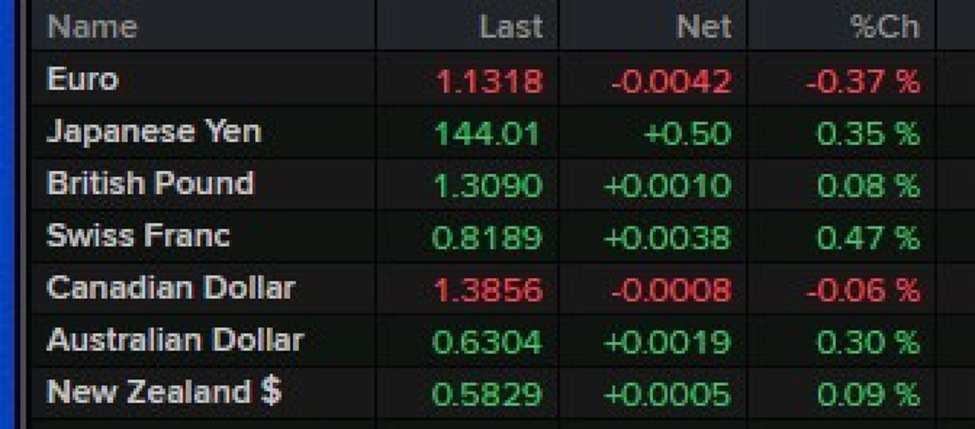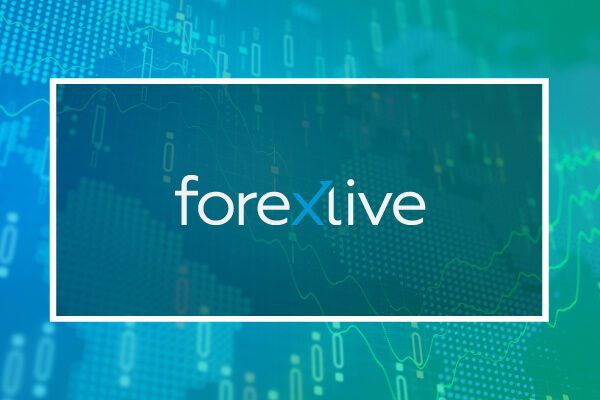Janina Steinmetz/DigitalVision via Getty Images
Listen below or on the go on Apple Podcasts and Spotify
Trump carves out exemptions for tariffs. (0:18) Meta vs. the FTC. (2:19) Retail sales will show a last tariff-less consumer picture. (3:30)
The following is an abridged transcript:
President Donald Trump said he will provide an update on the administration’s proposed semiconductor tariffs on Monday.
Lat Friday, the Trump administration excluded smartphones, computers and other popular consumer electronics from reciprocal tariffs. The exclusions include computer semiconductors and equipment used to manufacture semiconductors.
The exclusions, published by the U.S. Customs and Border Protection agency, follow Trump’s moves to impose 145% tariffs on products from China and 10% baseline tariffs on almost every other nation.
The 20 categories listed in the notice are exempt from 125% tariffs on Chinese imports and 10% baseline tariffs on other countries. Goods from China will still face a 20% tariff, a levy imposed to force Beijing to crack down on fentanyl.
The exemptions are applicable to popular electronics items such as smartphones, laptops, computers, computer processors, memory chips, flat panel TV displays, solar cells, hard drives.
The guidance should provide some respite to smartphone manufacturers like Apple (NASDAQ:AAPL) and Samsung (OTCPK:SSNLF), AI major Nvidia (NVDA), server makers like Super Micro (SMCI) and Hewlett Packard Enterprise (HPE), computer makers like Dell (DELL) and HP (HPQ), and chip major Taiwan Semiconductor Manufacturing (TSM).
Tech bull Dan Ives, who slashed price targets for Magnificent 7 names like Apple (AAPL) and Tesla (TSLA) over Trump’s tariffs, called the exclusions “the best news possible for tech investors.”
“Big Tech is back off the cliff with these exemptions and this changes the entire situation for tech stocks with this black swan event for the industry removed,” he sid. “The U.S. tech industry has a loud voice and despite initial strong pushback against exemptions within the White House the reality of the situation was finally recognized in the Beltway.”
On Monday, Meta Platforms (META) will face off against the U.S. Federal Trade Commission in a high-stakes antitrust trial that could lead to Instagram and WhatsApp being divested.
Mark Zuckerberg, is reportedly lobbying Trump and White House officials to agree to a settlement that would prevent his company from facing an antitrust trial.
According to the Wall Street Journal representatives of the social media and tech giant met with Trump and his senior advisers ahead of the trial.
As earnings season ramps up, J&J (JNJ) issues numbers Tuesday.
Wall Street is expecting EPS of $2.59 on revenue of $21.59 billion.
But BofA analysts say JNJ might not be the best tariff read for pure medtech exposure. Goldman Sachs recently upgraded J&J to Buy from Neutral, arguing that concerns surrounding the loss of exclusivity for the company’s blockbuster drug Stelara were overdone.
Also on the earnings calendar:
On Monday, Goldman Sachs (GS) and FB Financial (FBK) report.
Joining J&J on Tuesday are Bank of America (BAC), Citigroup (C) and United Airlines (UAL).
Abbott Labs (ABT) and Kinder Morgan (KMI) weigh in on Wednesday.
Taiwan Semiconductor (TSM), UnitedHealth (UNH), Blackstone (BX) and KeyCorp (KEY) step up Thursday.
On the economic front, March retail sales numbers will give traders the last pre-tariff look at the consumer.
The forecast is for a 1.3% rise in the headline number and a 0.2% rise for the core rate ex-auto.
Wells Fargo economists say: “Consumer confidence extended its string of declines to four months in March as consumers reported a broad deterioration in the assessment of the inflation outlook and overall economic conditions.”
“The collapse in confidence is consistent with stagflationary concerns, which we expect to unfold over the coming year. Big-ticket spending in March and April could see a surge as consumers pull forward those purchases before tariffs take a significant bite. After that, however, we are likely to see a weak consumer spending performance in the second half of the year.”
For income investors, Hormel Foods (HRL) and Universal (UVV) go ex-dividend on Monday. Hormel pays out on May 15 and Universal pays out on May 5.
AbbVie (ABBV), and Abbott Labs (ABT) go ex-dividend Tuesday. They both have a May 15 payout date.
And Colgate-Palmolive (CL) goes ex-dividend on Thursday, paying out on May 15.
And in the Wall Street Research Corner, Goldman Sachs strategist David Kostin highlighted a deterioration in equity market liquidity, saying it has created a negative feedback loop with volatility.
“Sudden liquidity shocks are typically associated with a wider range of returns,” he said.
Goldman’s S&P 500 Liquidity Tracker — which monitors bid-ask spreads, futures market depth and the price impact of trading volume — shows that liquidity has sharply declined in the past month, though it remains above pandemic-era lows.
One clear sign of market stress came on April 7, when the bid-ask spread for the median S&P 500 stock widened to 22 basis points. That’s the highest since March 2020. Similarly, the depth of futures markets fell into the 3rd percentile of the past two decades, underscoring the difficulty in executing large trades without moving prices.
Goldman rebalanced its liquidity baskets, which consist of 50 equal-weighted Russell 1000 stocks with the highest and lowest liquidity ratios. High-liquidity names generally offer narrower bid-ask spreads and higher trading volume, while low-liquidity stocks tend to be more thinly traded and volatile.
















